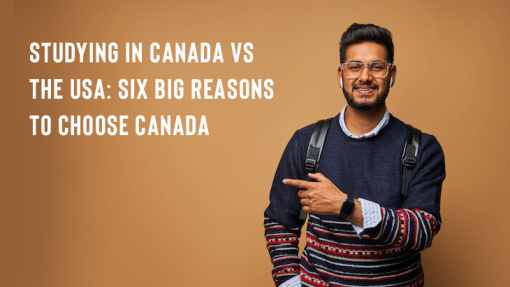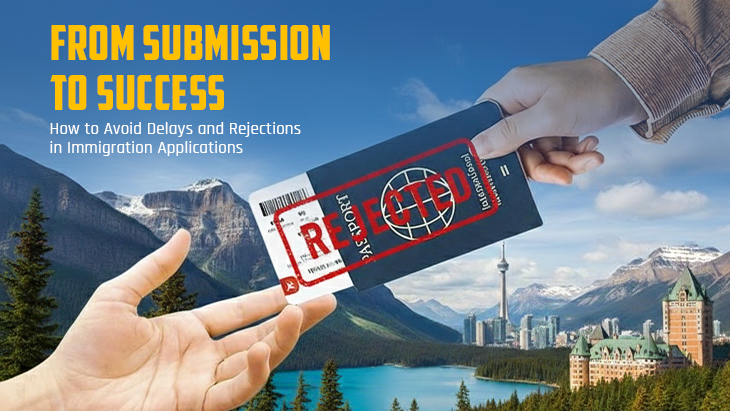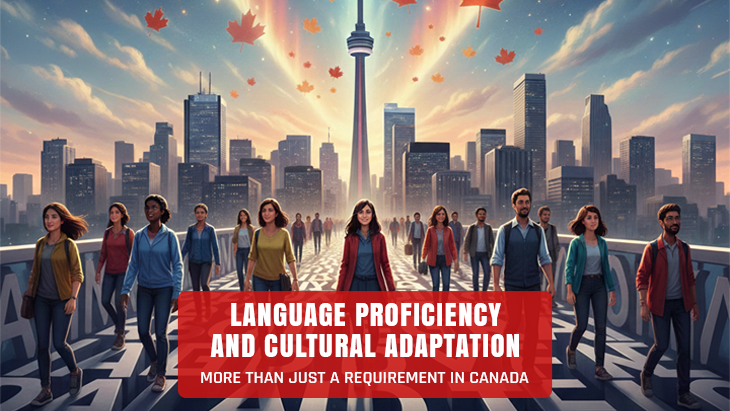Choose to study in Canada, and you ’ll have the occasion to encounter extensively different artistic and natural gifts. Enveloping the northern half of the North American mainland, Canada is known for its natural beauty – many nations in the world can boast anything close to its wealth of timbers, lakes and mountains – and for its multilateral diversity. The country has sanctioned bilingual status, with English and French used coincidently in government and sanctioned documents.
It’s also known for its meagre population (despite being the world’s alternate-largest country, it has a population lower than that of just one US state, California) and for its harsh layoffs. In some corridors of Canada, snow covers the ground for nearly half the time – but you ’re doubtful to find any Canadian universities in those regions!
STUDY IN USA
Canadian citizens don't need visas to study or share in an exchange program in theU.S. Still, Canadian scholars do need to gain an I-20 (or DS-2019) Certificate of Eligibility from the university, academy or exchange program they plan to attend. Upon damage of the I-20 (or DS-2019), the pupil will be registered with SEVIS, the pupil tracking system, will be assigned a SEVIS number, and will be needed to pay an enrollment figure. When crossing the border to begin their study or exchange program in the United States, the pupil will need to give the Officer at the harborage of entry.
•A Canadian passport;
•The original I-20 (or DS-2019) instrument;
• Evidence that the SEVIS figure has been paid;
• Evidence of capability to pay academy freights and living charges in the United States; and
• Evidence of ties to Canada.
WHY STUDY IN CANADA?
Prospective scholars interested in moving abroad may be importing the pros and cons of studying in Canada vs the USA. Though the USA is a popular destination, Canada presently holds the title as the number one country for foreign scholars.
In recent times, USA’s position as a leading country for transnational scholars has declined while Canada has soared to the top. So, why are more scholars studying in Canada vs the USA?
1. Delicate U.S. Visa Policy
One answer might be the problematic visa policy in the United States.
The Department of Homeland security has put forward an offer that would allow transnational scholars to reapply for their visa every time that they're in an academy in the United States. In discrepancy, the Canadian government encourages its scholars to stay in the country for as long as possible.
The U.S. visa operating system is also a lengthy and complicated process, taking violent scrutiny, questioning and plenitude of staying. The Canadian visa process is simpler and shorter, making it easier for transnational scholars to get a study permit.
A Canadian study permit can be reused in as little as 3 weeks.
2. Cost
Not only is studying in the United States more precious than the cost of studying in Canada, but fiscal aid is a lot harder to get as a transnational pupil in the United States. Canadian universities are more likely to offer fiscal aid or literacy to transnational scholars, a commodity that's veritably rare in the United States.
Also, on average, Canadian university education freights are 27 further provident than education freights at US universities.
Still, education freights aren't the only factor to consider. The cost of living is also a lot lower in Canada. Transnational scholars may be choosing to study in Canada because it’s more affordable.
3. Healthcare
When you think about the biggest differences between Canada and the United States, Canada’s universal healthcare may come to mind.
Since Canadian healthcare is managed by individual businesses, there are differences in the content that they offer. Not all businesses offer content for temporary residents like transnational scholars. That said, scholars in businesses that do n’t include transnational scholars can generally conclude-in to their academy’s insurance plan or use one of numerous affordable private insurance providers.
In the United States, numerous seminaries require transnational scholars to apply for health insurance. As a result, these scholars frequently have to pay high decorations for private healthcare.
Read further about the different types of healthcare for transnational scholars in Canada.
4. Welcoming Attitude
According to Gallup’s Migratory Acceptance Index (MAI), Canada ranks as the world’s number one most accepting country for settlers. A recent study has also shown that Canadians are more welcoming to beginners than ever since the COVID-19 epidemic.
In stark discrepancy to what some see as hostile U.S. policy towards nonnatives, Canada aims to embrace transnational scholars.
The data also confirms Canada’s welcoming station toward transnational scholars. The number of transnational scholars in Canada increased from in 2000 to in 2019. A recent report from Statistics Canada revealed six in ten transnational scholars who were employed after their studies came landed immigrants within 10 times of entering their study permit.
In discrepancy, the number of transnational scholars in the USA grew at the slowest rate since 2009. These numbers make it clear that transnational scholars are decreasingly choosing Canada over the United States, which could be due to the programs the Canadian government has espoused to attract transnational scholars.
5. Employment Openings
Transnational scholars can work in Canada for over to three times after they graduate or a Post-Graduation Work Permit (PGWP), which helps them find employment and provides a gateway to endless hearthstone and, ultimately, citizenship. This isn't the case in the United States where no employment after scale is allowed unless you have been patronised.
The general perception among transnational scholars is that nonnatives aren't welcome in the U.S., and this will really affect their employability in the original request.
6. Canada Wants You to Stay
For scholars interested in transitioning to endless occupant status after scale, Canada is by far your stylish option. Canada decreasingly views transnational scholars as the ideal emigrant. As the number of transnational scholars coming to Canada steadily grows, so do Canada’s efforts to retain them permanently.
Both the parochial and civil governments offer multitudinous options for transnational graduates to transition to endless occupancy in Canada. In April 2021, Canada blazoned a temporary public policy that allowed transnational graduates working in Canada to apply for endless hearthstone status. Immigration minister at the time, Marco Mendicino, made Canada’s communication to transnational scholars clear “ your status may be temporary, but your benefactions are lasting — and we want you to stay.”
The U.S. offers limited openings for transnational scholars to transition to endless status. Unlike Canada, theU.S. doesn’t offer any special immigration options specific to transnational graduates. Without family connections or a financing employer, it's incredibly gruelling to gain an American endless occupancy or green card.













